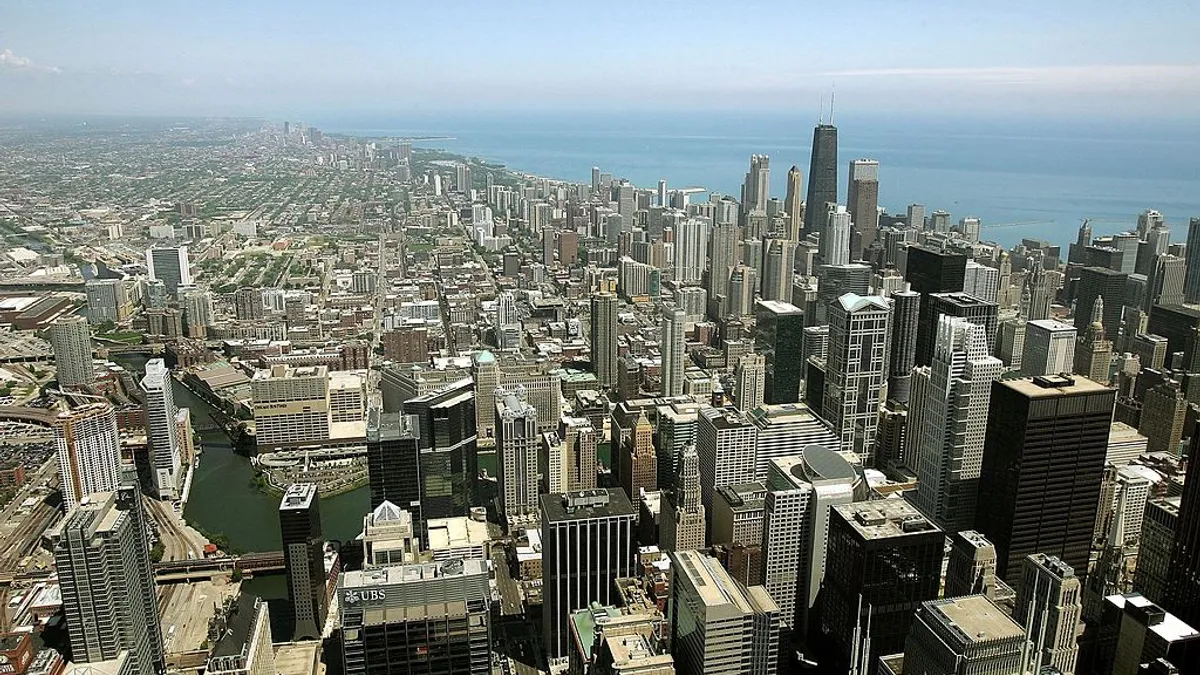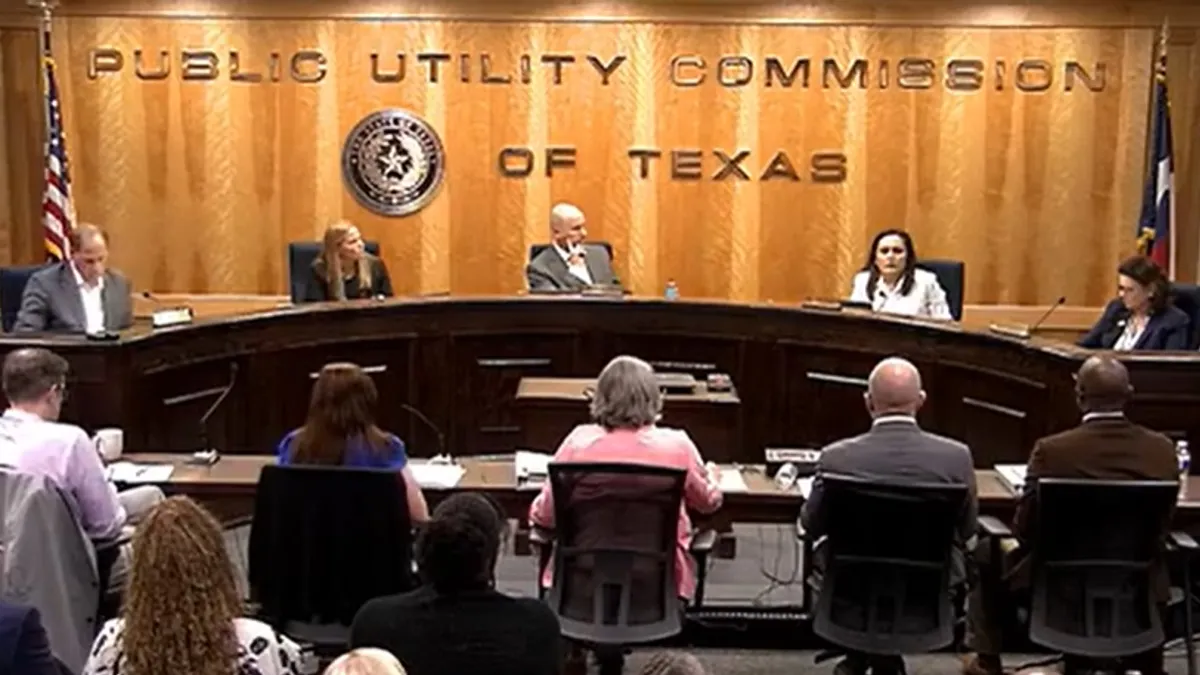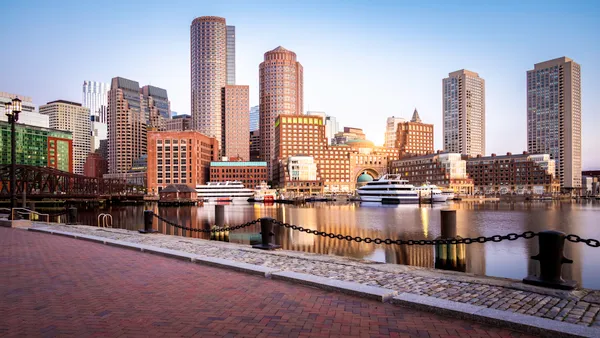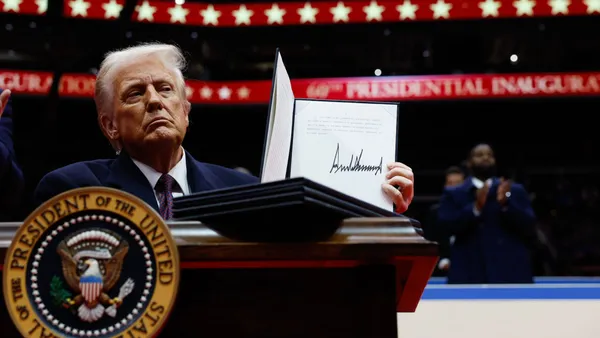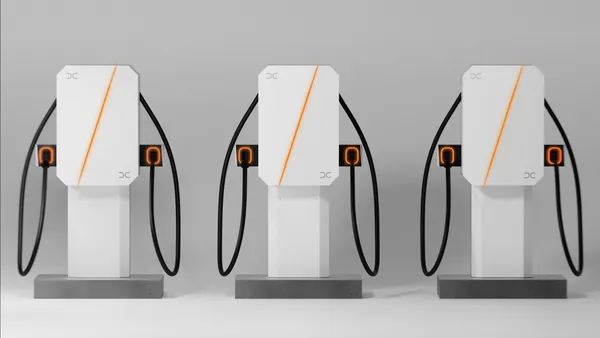Dive Brief:
- The National Resources Defense Council (NRDC), the International Council on Clean Transportation and other nonprofits and industry groups have awarded Chicago, San Diego and San Jose, California, each with a $100,000 grant to support local partners working to achieve 100% zero-emissions commercial vehicles in their cities by 2030, according to Amanda Eaken, NRDC’s director of transportation with the American Cities Climate Challenge.
- The winning cities will use the program's financial and technical assistance to support the following plans:
- Chicago aims to achieve zero-emissions commercial vehicles in “overburdened communities” through its Drive Clean Chicago program, a cargo e-bike pilot and an incentive program to encourage businesses to transition to electric fleets.
- San Diego leaders will create a medium- and heavy-duty zero-emission vehicle infrastructure blueprint that transitions decision-making power to the communities most impacted by diesel pollution while identifying obstacles and solutions in the move toward electric vehicles.
- San Jose, California, will design a zero-emissions neighborhood pilot program, launch an equity task force that includes local residents, aim to pass a "zero emissions resolution" with the city council and establish an urban freight working group with private-sector partners.
- The opportunity was made available to the 25 cities participating in the Bloomberg Philanthropies American Cities Climate Challenge, according to Eaken. The three cities stood out based on their commitment and capacity; their collaboration with community partners; their commitment to equity and their realistic ambition for the one-year program, she said.
Dive Insight:
As demand for urban last-mile deliveries is anticipated to grow 78% by 2030, according to the World Economic Forum, cities are seeking ways to transition away from diesel and gas powered trucks.
"The transition to zero emissions trucks is essential to clean up the dirty air that is making our communities sick," NRDC writes.
Pollution from gas- and diesel-powered trucks is also particularly prevalent in low-income neighborhoods and communities of color. Forty-five percent of the Greater Boston area’s Black residents, for example, live in areas with the highest rates of pollution compared with 29% of White residents.
The coronavirus pandemic also highlighted existing disparities in air pollution. Early in the outbreak, researchers found that areas with higher air pollution were more likely to see new patients die from the virus. The American Lung Association reports that more than 40% of U.S. residents are living in areas with unhealthy ozone or particle pollution.
The zero-emissions program can potentially help chip away at some of these disparities by increasing communication and joint planning among industry, cities and community organizations, Eaken said.
San Jose, for example, is planning to launch a zero-emissions neighborhood pilot. Neighborhood residents will be able to choose from a menu of program options related to climate action, in addition to specifying other community priorities, like safety and cleanliness, a city spokesperson said in an email statement.
"It would be a voluntary program designed to bring city resources to neighborhoods most in need and give residents a chance to co-create local solutions to climate change. Receiving the Delivering Zero Emissions Communities grant gives us the opportunity to incorporate freight into this pilot program," the spokesperson stated.
To help tackle the increasing rates of polluted air, cities are also turning to solutions like zero-emission delivery zones, e-cargo bikes and electric fleets. Santa Monica, California, launched a one-mile zero-emission zone to support the city’s goal to reduce greenhouse gas emissions and air pollution an additional 25% by 2028. Meanwhile, Miami, New York and Portland, Oregon, have considered e-cargo bikes for deliveries or other municipal uses.
U.S. cities could also learn from London’s clean air rules for trucks, which recent reports have shown could benefit millions across England and Wales.
The impetus for implementing more clean air and transportation initiatives will likely continue to increase as the Biden administration aims to strengthen emission rules for trucks.
"In the face of so much evidence of climate change that we're all experiencing — whether it's the wildfires, whether it’s the drought, whether it’s the severe storms," Eaken said climate change and this program have shown "that mayors of cities don't need convincing to act on climate change."
"Mayors of cities understand intuitively that the same actions that will help us to achieve our climate goals and bring down that carbon pollution, they also just make their cities better places to live," she said.



